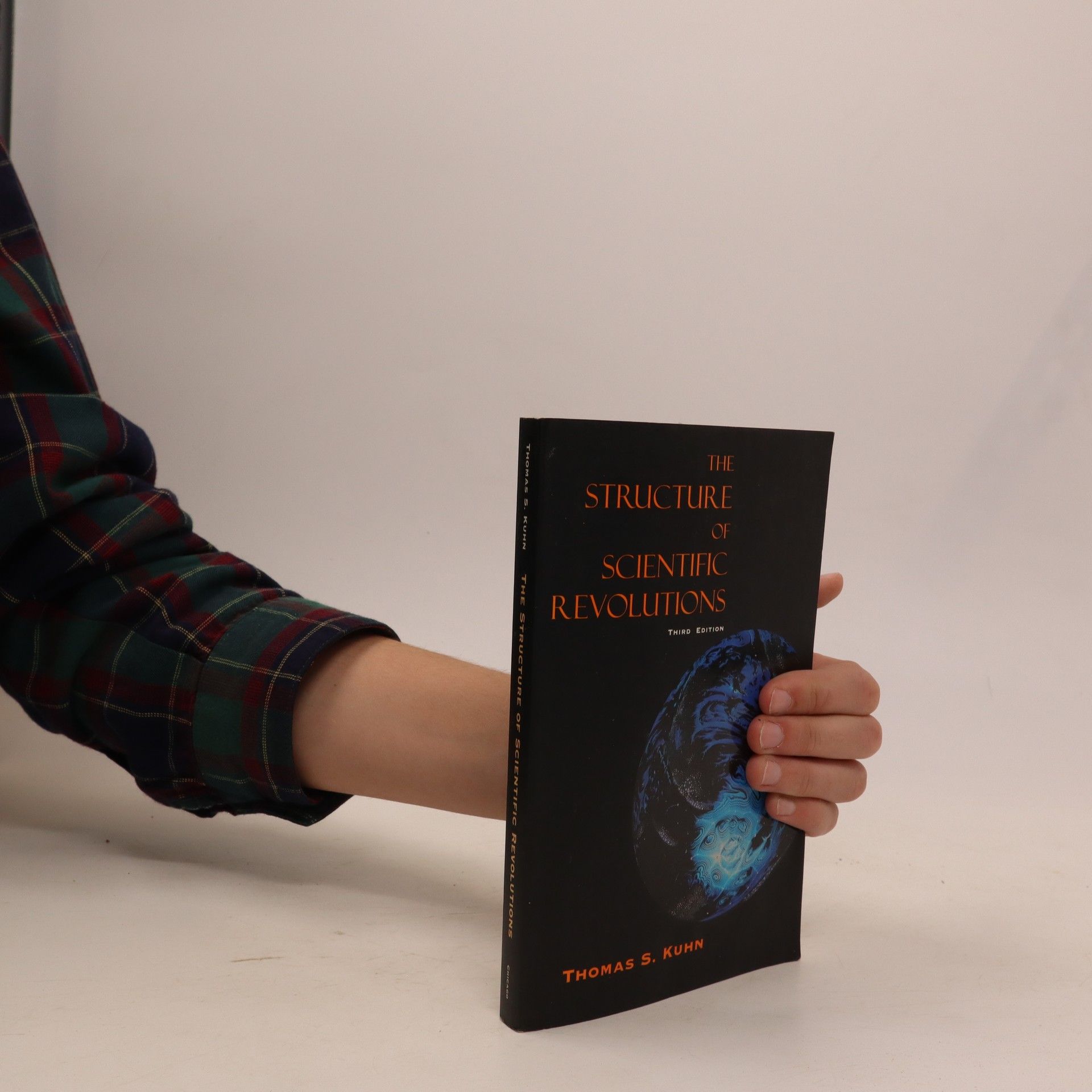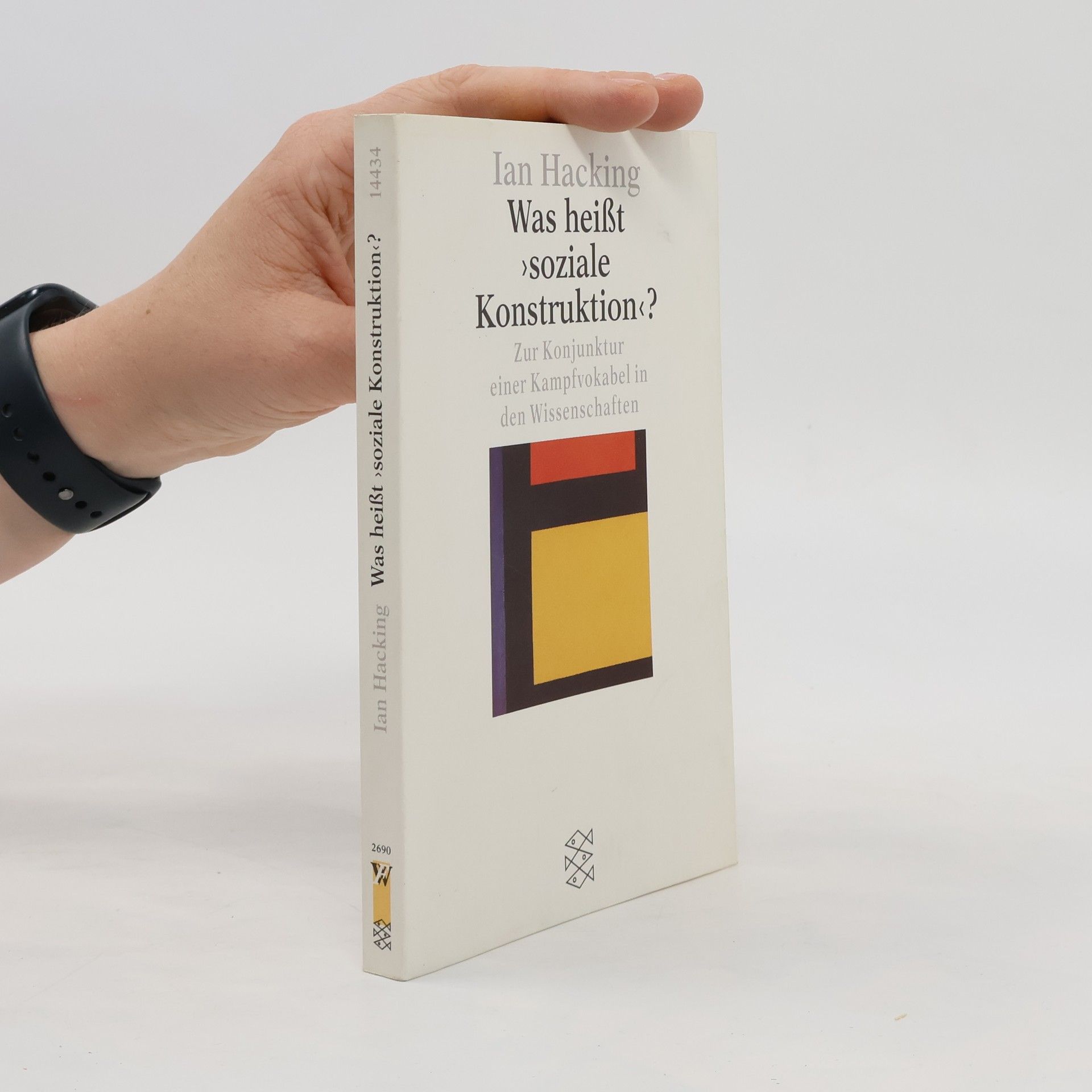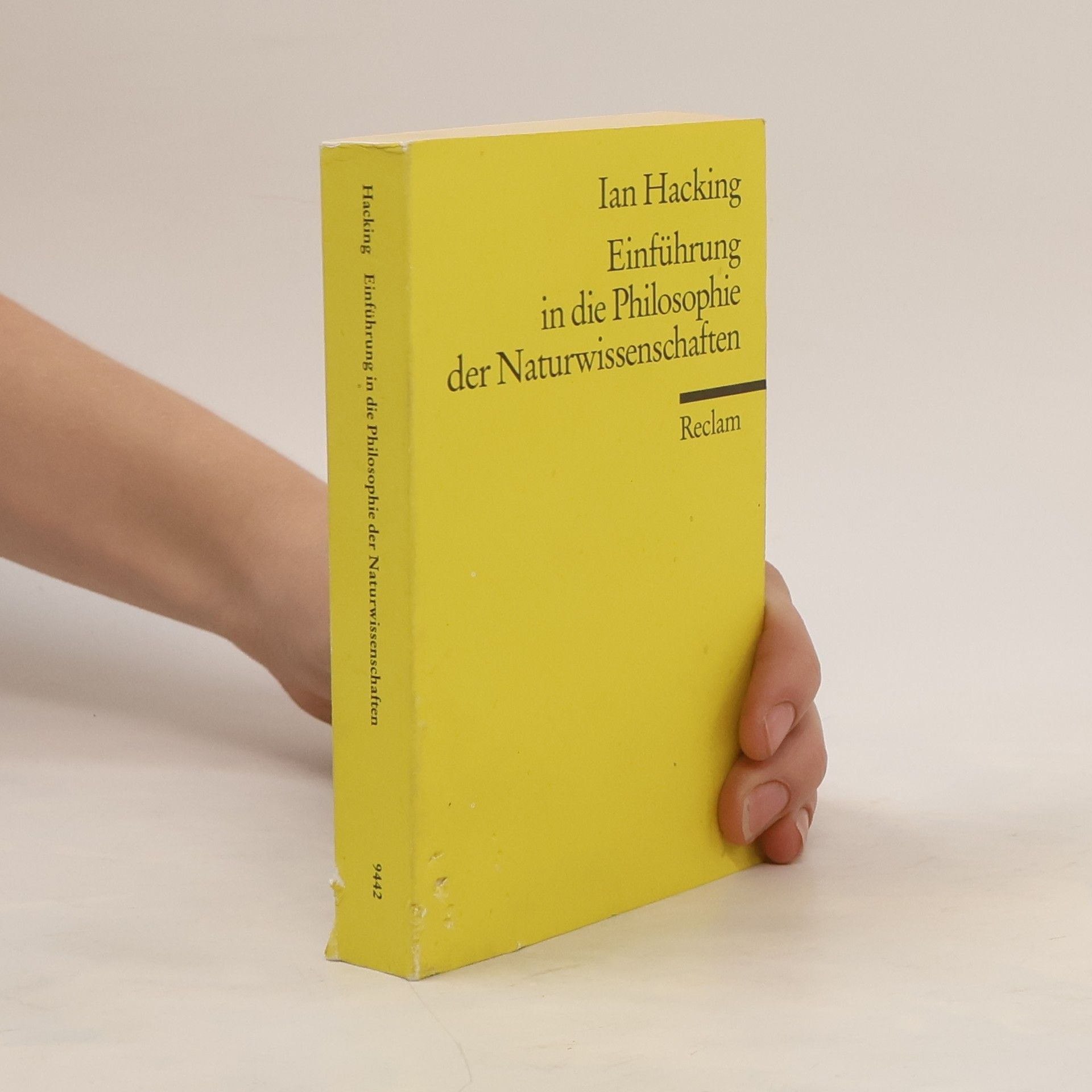La obra de Ian Hacking explora la revolución científica actual, que transforma la comprensión de la naturaleza y desafía principios clásicos. Analiza la evolución de la estadística entre la Revolución Industrial y Francesa, y su impacto en la normalidad y anormalidad. Concluye con un análisis de C.S. Peirce y su influencia en el estudio del caos.
Ian Hacking Libros
Ian Hacking es Profesor Emérito de Filosofía en la Universidad de Toronto, especializado en la historia de la ciencia. Su obra profundiza en la historia y la filosofía de la ciencia, particularmente en los campos de la probabilidad, la estadística, la psiquiatría y la biología. Hacking explora cómo el conocimiento y los métodos científicos moldean nuestra realidad y nuestra comprensión del mundo. Su enfoque a menudo se basa en estudios de caso históricos para analizar las implicaciones filosóficas de la investigación científica.







Logic of Statistical Inference
- 226 páginas
- 8 horas de lectura
This book showcases Ian Hacking's early ideas on the philosophical issues surrounding statistical reasoning.
The book explores the surge in diagnosed dissociative disorders, particularly multiple personality disorder (MPD), over the past twenty-five years, linking it to the prevalence of child sexual abuse. Philosopher Ian Hacking examines the moral and political implications of this epidemic, addressing the contentious debates around memory and the potential for false memories. Through this lens, he critically analyzes how society grapples with psychological trauma and the power dynamics involved in understanding and treating these complex issues.
This book combines detailed scientific historical research with characteristic philosophic breadth and verve.
Against Method
- 296 páginas
- 11 horas de lectura
Paul Feyerabend’s globally acclaimed work, which sparked and continues to stimulate fierce debate, examines the deficiencies of many widespread ideas about scientific progress and the nature of knowledge. Feyerabend argues that scientific advances can only be understood in a historical context. He looks at the way the philosophy of science has consistently overemphasized practice over method, and considers the possibility that anarchism could replace rationalism in the theory of knowledge. This updated edition of the classic text includes a new introduction by Ian Hacking, one of the most important contemporary philosophers of science. Hacking reflects on both Feyerabend’s life and personality as well as the broader significance of the book for current discussions.
The Emergence of Probability
- 244 páginas
- 9 horas de lectura
Includes an introduction, contextualizing his book in light of developing philosophical trends.
Thomas S. Kuhn's work explaining the process of scientific discovery. This text is the third edition and incorporates a new index.
The Social Construction of What?
- 272 páginas
- 10 horas de lectura
Often lost in the debate over the validity of social construction is the question of what is being constructed. Ian Hacking looks at the issue of child abuse, and examines the ways in which advanced research on new weapons influences not the content but the form of science. schovat popis
Was heißt "soziale Konstruktion"?
- 207 páginas
- 8 horas de lectura
'Sozialer Konstruktivismus' ist en vogue. Man muß nur die Verzeichnisse der theoretisch ambitionierten Neuerscheinungen in den Sozialwissenschaften durchblättern, um sich davon zu überzeugen. Und die 'science wars' führen vor, daß die Debatten über die 'soziale Konstruiertheit' von Theorien und Fakten auch die Naturwissenschaften erreicht haben. Grund genug also, sich angesichts der erhitzten Diskussionen einmal die Frage vorzulegen, was eigentlich mit Äußerungen der Form 'X ist sozial konstruiert' überhaupt behauptet wird. Ian Hacking, Philosoph und Wissenschaftstheoretiker, hat sich dieser Frage angenommen und eine ebenso nüchterne wie erhellende Analyse der von 'Konstruktionisten' auf den verschiedensten Gebieten erhobenen Ansprüche vorgelegt.
Einführung in die Philosophie der Naturwissenschaften
- 477 páginas
- 17 horas de lectura
Ein Buch für Philosophen und Wissenschaftler, dessen erster Teil (»Darstellen«) die wesentlichen wissenschaftstheoretischen Grundlagen und Ansätze behandelt (Objektivität, Realismus, Positivismus, Pragmatismus u. a.). Der zweite Teil (»Eingreifen«) bietet eine Einführung in die philosophischen Probleme des Experiments und der Beobachtung mit vielen Fallbeispielen aus Physik, Biologie, Chemie. Es zeigt sich, daß Experiment und Theorie voneinander unabhängig sein können. Das hat Folgen für ein adäquates Verständnis des wissenschaftlichen Realismus.


